Rob Bignell's Blog, page 270
February 14, 2016
Five Great Quotations about Backstory
���If a 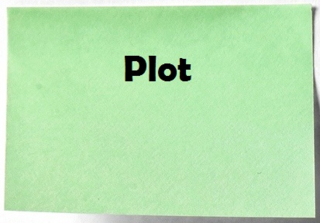 writer knows enough about what he is writing about, he may omit things that he knows. The dignity of movement of an iceberg is due to only one ninth of it being above water.��� - Ernest Hemingway
writer knows enough about what he is writing about, he may omit things that he knows. The dignity of movement of an iceberg is due to only one ninth of it being above water.��� - Ernest Hemingway
���Short stories are designed to deliver their impact in as few pages as possible. A tremendous amount is left out, and a good short story writer learns to include only the most essential information.��� - Orson Scott Card
���The most important things to remember about back story are that (a) everyone has a history and (b) most of it isn���t very interesting.��� - Stephen King
���If we turn too much of our backstory into the story or illustrate too much of it via detailed flashbacks (either at the beginning of our stories or in subsequent chapters), we rob our readers of the sense of weight given by the 9/10 of the iceberg floating under the water of our stories.��� - K.M. Weiland
���...the secret of excitement is to go deeper into your characters. Create more backstory, more secrets, more complexity, and you���ll get excited again.��� - James Scott Bell
Professional Book Editor: Having your novel, short story or nonfiction manuscript proofread or edited before submitting it can prove invaluable. In an economic climate where you face heavy competition, your writing needs a second eye to give you the edge. I can provide that second eye.
<A HREF="http://ws-na.amazon-adsystem.com/widg... Widgets</A>
Related articles
 Five Great Quotations for Aspiring Writers
Five Great Quotations for Aspiring Writers Five Great Quotations about Bad Writing
Five Great Quotations about Bad Writing Five Great Quotations about Editing
Five Great Quotations about Editing
February 13, 2016
Weekly Writing Affirmation: There���s no need to 'want' to be a writer. Simply write.
All too 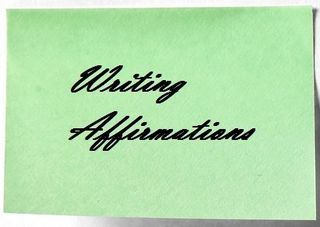 often, struggling writers sabotage themselves without even realizing it. They do this by labeling themselves as an ���aspiring novelist,��� or as a ���wannabe writer.��� Perhaps they even say stuff like ���I wish I were a writer��� or ���Someday I���ll publish a book.���
often, struggling writers sabotage themselves without even realizing it. They do this by labeling themselves as an ���aspiring novelist,��� or as a ���wannabe writer.��� Perhaps they even say stuff like ���I wish I were a writer��� or ���Someday I���ll publish a book.���
Such terminology highlights not the writers��� vision but their failure. Rather than focusing on what they are ��� writers ��� they concentrate on what they are not ��� unpublished.
Such an approach is merely a writer allowing his fear or self-loathing defining them. It gives him an excuse as to why he hasn���t (and maybe never well) achieve his personal dream.
In a day when self-publishing is virtually free and widely accepted, there���s no reason to not write and publish your manuscript. You always can change the text ��� not just go back and correct typos but even rewrite the paragraphs, whole chapters, or heck, even the whole book.
In any case, you don���t have to be published to be a writer. Certainly Emily Dickinson, who tucked her poems away in the back of her drawer, was a writer even though virtually none of her work was published during her lifetime.
Simply put, there���s no need to want to be a writer. Simply write.
Professional Book Editor: Having your novel, short story or nonfiction manuscript proofread or edited before submitting it can prove invaluable. In an economic climate where you face heavy competition, your writing needs a second eye to give you the edge. I can provide that second eye.
<A HREF="http://ws-na.amazon-adsystem.com/widg... Widgets</A>
Related articles
 Writing Prompt: Try something risky
Writing Prompt: Try something risky 'Writing Affirmations' book hits shelves
'Writing Affirmations' book hits shelves Long-time editing client's novelette published
Long-time editing client's novelette published
February 12, 2016
Make first book in your series permanently free
Perhaps  the greatest challenge facing self-published writers is getting their name and book title in front of people. That���s especially difficult when hundreds of books are published every day. One long-term solution to help overcome this problem is to make the first book in your series permanently free.
the greatest challenge facing self-published writers is getting their name and book title in front of people. That���s especially difficult when hundreds of books are published every day. One long-term solution to help overcome this problem is to make the first book in your series permanently free.
When you give away a book for free, you���re likely to generate a lot of interest. If you���ve ever done free book promotions days on Kindle DP, for example, you���ve probably seen dozens if not hundred of your books get downloaded. So if you have several books, especially a series of them, why not always offers one for free?
The goal is to get potential readers to sample your work. If they enjoyed reader the book you���ve given them for them, then they���ll hopefully:
��� Purchase your other books in the series
��� Tell others about the book; they in turn will sample it for free and purchase your other books in the series
��� Check out your web page or social media pages and begin to follow you
��� Post reviews of your books on Goodreads or Amazon
Of course, all of this assumes that in your ebook you���ve included information about and links to the next books in the series, have links that take readers straight to your social media pages, and that you have a page asking for reviews with links to those websites.
The best part of this strategy is that a component of your marketing effort is now largely on auto-pilot ��� you���re not making public appearances, not writing guest blogs, not constantly devising clever tweets to pump up book sales.
Regardless, so that people know about your book you���ll want to include promos for the free book at various websites. For example, you might include a promo on your blog pages, your website pages, and in all of your other books. You���ll also want to send out a note about the book on occasion via your social media sites. But again, once these initial promos are created, they can be run largely on auto-pilot.
Note that you should only do this with ebooks. While you can give away paperbacks for free, costs incur, and that will greatly reduce the profit from your sales and even reduce your writing time for the next book in your series.
Professional Book Editor: Having your novel, short story or nonfiction manuscript proofread or edited before submitting it can prove invaluable. In an economic climate where you face heavy competition, your writing needs a second eye to give you the edge. I can provide that second eye.
&amp;amp;amp;lt;A HREF="http://ws-na.amazon-adsystem.com/widg... Widgets&amp;amp;amp;lt;/A&amp;amp;amp;gt;
Related articles
 Place hyperlinks in your nonfiction ebook
Place hyperlinks in your nonfiction ebook Common questions about publishing ebooks
Common questions about publishing ebooks Boost book sales via backlinks to your website
Boost book sales via backlinks to your website What is a 'platform' when promoting a book?
What is a 'platform' when promoting a book? Do Kindle DP pre-orders help or hinder sales?
Do Kindle DP pre-orders help or hinder sales?
February 11, 2016
Create a basic outline for your nonfiction book
Many people 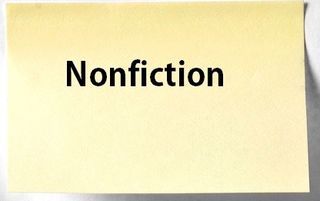 have great ideas for nonfiction books, and given their experiences ��� recovering from an illness, working for years in a profession, solving a perplexing issue ��� they are ideal experts to write such a title. Unfortunately, they never get around to writing the book because they don���t know how to get started.
have great ideas for nonfiction books, and given their experiences ��� recovering from an illness, working for years in a profession, solving a perplexing issue ��� they are ideal experts to write such a title. Unfortunately, they never get around to writing the book because they don���t know how to get started.
To get started writing, always take a great idea and create an outline for it. This outline then guides the research and writing. To come up with an outline, think like a journalist. A reporter when interviewing for and writing a story always seeks to answer the 5 W���s and 1 H ��� who, what, why, when, where and how.
Using the 5 W���s and 1 H, you can create an outline to get you thinking about what to write and how to organize the book. Using this always helps ensure you are complete when writing on the subject. For example, the following would work as a chapter-by-chapter outline using the 5 W���s and 1 H:
��� Introduction (who) ���Do you want������
��� What is_________
��� Types of _________
��� Why (advantages) _________
��� Why not (disadvantages) __________
��� Where to ___________
��� When to __________
��� How to _________
��� How not to _________ (common pitfalls)
��� Conclusion (offer encouragement)
Suppose you were penning an informative guide to trekking poles (the walking sticks that backpackers use). The above outline for a book about that topic might look like this:
��� Introduction (who needs a trekking pole) ���Do you want to make hiking easier?���
��� What is a trekking pole (its history, its parts)
��� Types of trekking poles (wood vs. aluminum)
��� Why you would use a trekking pole (advantages)
��� Why you might not want to use a trekking pole (disadvantages, or situations when a trekking pole is unnecessary)
��� Where to purchase a trekking pole
��� When to use a trekking pole
��� How to use a trekking pole
��� How not to use a trekking pole (common misuses)
��� Conclusion (offer encouragement ��� how hiking will be easier)
Remember that an outline always is a flexible framework; you never need to rigidly follow it. In the trekking pole outline, for example, you might move the ���situations when a trekking pole is unnecessary��� section to after the ���when to use a trekking pole��� chapter, or perhaps even combine them into a single chapter.
Also, note that not all of these sections may apply to your specific topic. In addition, some may be longer than others, as well.
Professional Book Editor: Having your novel, short story or nonfiction manuscript proofread or edited before submitting it can prove invaluable. In an economic climate where you face heavy competition, your writing needs a second eye to give you the edge. I can provide that second eye.
&amp;amp;amp;amp;lt;A HREF=&quot;http://ws-na.amazon-adsystem.com/widg... Widgets&amp;amp;amp;amp;lt;/A&amp;amp;amp;amp;gt;
Related articles
 Writing Inspiration: Explore then strive
Writing Inspiration: Explore then strive Sales advantages of writing nonfiction books
Sales advantages of writing nonfiction books Fresh, original website content is vital
Fresh, original website content is vital Writing Prompt: Try something risky
Writing Prompt: Try something risky
February 10, 2016
He always gets this wrong: Who vs. whom
This is 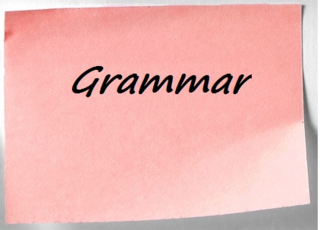 one of those grammar rules that only grammarians really understand and that just about everybody outside of grammarians uses incorrectly. I always recommend avoiding the issue by writing around it. After all, if you are grammatically correct, it will sound wrong to most readers, but if you sound right to most readers, the grammar police will come knocking.
one of those grammar rules that only grammarians really understand and that just about everybody outside of grammarians uses incorrectly. I always recommend avoiding the issue by writing around it. After all, if you are grammatically correct, it will sound wrong to most readers, but if you sound right to most readers, the grammar police will come knocking.
For the record, what follows is how the grammar police would expect you to correctly use these two words.
If the word who/whom refers to can be replaced with he or she, then use who.
RIGHT: Who scored the touchdown? (He scored the touchdown?)
If the word who/whom refers to can be replaced with him or her, then use whom.
RIGHT: Dawn asked whom they were talking about. (They were talking about him.)
WRONG: Whom scored the touchdown? (Him scored the touchdown?)
WRONG: Dawn asked who they were talking about. (They were talking about he.)
Writing around who/whom involves replacing that pronoun with a phrase that means the same thing. For example:
RIGHT: Which player scored? (replace who/whom with which player)
RIGHT: Dawn asked which guy they were talking about (replace who/whom with which guy)
Professional Book Editor: Having your novel, short story or nonfiction manuscript proofread or edited before submitting it can prove invaluable. In an economic climate where you face heavy competition, your writing needs a second eye to give you the edge. I can provide that second eye.
<A HREF="http://ws-na.amazon-adsystem.com/widg... Widgets</A>
Related articles
 Don't smother writing with your red pen
Don't smother writing with your red pen What are the different levels of editing?
What are the different levels of editing? How self-edit and revise your fiction story
How self-edit and revise your fiction story
February 9, 2016
Four writing prompts: Turning a new page
Good 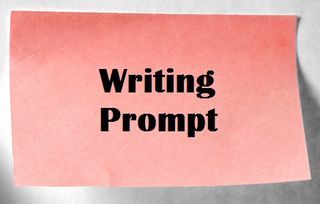 stories center on the clashing of characters��� goals and motivations. Sometimes a character���s goals and motivations arise upon turning a new page in one���s life. Here are four writing prompts for stories that involve the goal of turning a new page.
stories center on the clashing of characters��� goals and motivations. Sometimes a character���s goals and motivations arise upon turning a new page in one���s life. Here are four writing prompts for stories that involve the goal of turning a new page.
Man vs. nature
The main character decides that to become the person he wants to be, he must accept some new challenge in a foreboding environment that he is unfamiliar with (say moving from sunny Southern California to the Arctic). What obstacles in nature threaten his ability to complete the new challenge?
Man vs. man
What if after a life-changing event two people - maybe father and son, mother and daughter, or husband and wife ��� must create a new destiny together but find themselves at odds with one another about how to do so? Why do they have different dreams? How do they find a future together?
Man vs. society
After a calamitous event in the main character's life, he moves to another town where he plans to start a new chapter in his life by opening a running a business he's always dreamed of. The local residents aren't too keen on his new business or he coming to their town, though. How does he overcome the townsfolks' cool reception to him and succeed at his new business?
Man vs. self
The main character has an addiction but know he needs overcome it or his world will fall part ��� perhaps lose his family, his career, his self-worth. How does he overcome this addiction ��� as well as the personal demons of the past that haunt him and lead to the addiction?
Professional Book Editor: Having your novel, short story or nonfiction manuscript proofread or edited before submitting it can prove invaluable. In an economic climate where you face heavy competition, your writing needs a second eye to give you the edge. I can provide that second eye.
&amp;amp;amp;lt;A HREF="http://ws-na.amazon-adsystem.com/widg... Widgets&amp;amp;amp;lt;/A&amp;amp;amp;gt;
Related articles
 Questions to ask yourself when plotting a story
Questions to ask yourself when plotting a story Develop complex antagonist to maximize conflict
Develop complex antagonist to maximize conflict How to create an interesting villain for your story
How to create an interesting villain for your story
February 8, 2016
Which is best: Character- or plot-driven stories?
Generally, 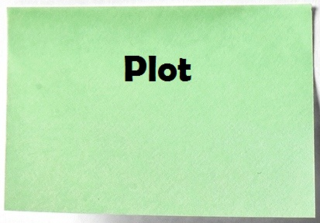 stories can be classified as either character- or plot-driven. One is not necessarily better than the other, though readers usually respond more positively to the former.
stories can be classified as either character- or plot-driven. One is not necessarily better than the other, though readers usually respond more positively to the former.
A character-driven story focuses on conflicts between the protagonist and antagonist that usually leads to a change in the hero���s personality or outlook. For example, in Homer���s The Iliad, the main character Achilles must choose between the fortune of home or the glory of heroic battle. He learns through the battles and sacrifices unfolding before him that heroic battle offers a greater reward ��� of immortality, as the story of his life will be remembered in all homes forever.
In contrast, a plot-driven story focuses on the protagonist merely overcoming obstacles but never needing to learn anything along the way in doing so. In large part, Homer���s The Odyssey, is plot-driven, as the epic���s protagonist, Odysseus, must find a way to return home when his ship is blown off course in a storm. Along the way, he battles several monsters and visits a variety of exotic locales.
While some genres ��� especially mysteries, romances, westerns and action-adventure ��� are known for being plot-driven, they need not necessarily be so. In fact, modern readers often rate character-driven novels in those genres as their favorites.
Indeed, the problem with most plot-driven stories is that the characters are wooden. Readers simply don���t relate to a two-dimensional, unbelievable protagonist. In addition, plot-driven often stories don���t ring true. That���s because the action occurs in the direction the author wants to take a story rather than arising from the protagonist���s motivations or goals; often, the hero could have made another choice that that would have prevented the action from even occurring.
A danger of character-driven stories is that they can become plot-less, a common (albeit often unfair) criticism of the literary genre. This occurs when stories appear to be more about naval-gazing and lack any interesting event. Typically the problem with such stories is that they lack any out-of-whack event to set the story in motion; that is, there���s no reason for the naval-gazing to occur, so the protagonist appears to be purely be engaging in a pity party.
Professional Book Editor: Having your novel, short story or nonfiction manuscript proofread or edited before submitting it can prove invaluable. In an economic climate where you face heavy competition, your writing needs a second eye to give you the edge. I can provide that second eye.
&lt;A HREF="http://ws-na.amazon-adsystem.com/widg... Widgets&lt;/A&gt;
Related articles
 Fanfic not so bad if used for growing as a writer
Fanfic not so bad if used for growing as a writer Avoid dead narrator plot gimmick in story
Avoid dead narrator plot gimmick in story Zip two disparate stories into one tale
Zip two disparate stories into one tale Questions to ask yourself when plotting a story
Questions to ask yourself when plotting a story
February 7, 2016
Five Great Quotations about Escapism
���We live 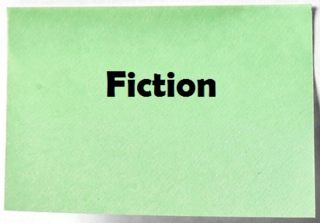 under continual threat of two equally fearful, but seemingly opposed destinies: unremitting banality and inconceivable terror. It is fantasy, served out in large rations by the popular arts, which allows most people to cope with these twin specters.��� - Susan Sontag
under continual threat of two equally fearful, but seemingly opposed destinies: unremitting banality and inconceivable terror. It is fantasy, served out in large rations by the popular arts, which allows most people to cope with these twin specters.��� - Susan Sontag
���Fiction should be a place of lollipops and escape. Real life is depressing enough ��� I, for one, don���t want to read about make believe misery, too.��� - Nicole Christie
���I have claimed that Escape is one of the main functions of fairy-stories, and since I do not disapprove of them, it is plain that I do not accept the tone of scorn or pity with which ���Escape��� is now so often used. Why should a man be scorned if, finding himself in prison, he tries to get out and go home? Or if he cannot do so, he thinks and talks about other topics than jailers and prison-walls?��� - J.R.R. Tolkien
���Reading is escape, and the opposite of escape; it���s a way to make contact with reality after a day of making things up, and it���s a way of making contact with someone else���s imagination after a day that���s all too real.��� - Nora Ephron
���Books don���t offer real escape, but they can stop a mind scratching itself raw.��� - David Mitchell
Professional Book Editor: Having your novel, short story or nonfiction manuscript proofread or edited before submitting it can prove invaluable. In an economic climate where you face heavy competition, your writing needs a second eye to give you the edge. I can provide that second eye.
&amp;amp;lt;A HREF="http://ws-na.amazon-adsystem.com/widg... Widgets&amp;amp;lt;/A&amp;amp;gt;
Related articles
 Five Great Pieces of Advice to Aspiring Writers
Five Great Pieces of Advice to Aspiring Writers Five Great Quotations about Pleasure of Writing
Five Great Quotations about Pleasure of Writing Five Great Quotations about Story Ideas
Five Great Quotations about Story Ideas
February 6, 2016
Don���t wait for writing inspiration to strike
One of the 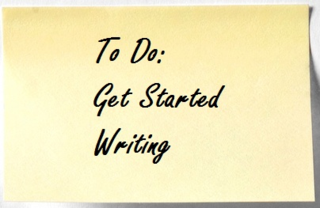 biggest mistakes aspiring writers make is to wait for ���inspiration.��� While there certainly are times in all authors��� lives that they are more creative and productive, you can���t idly hope that such a moment soon arrives. Instead, you need to practice and master your craft by writing constantly. Indeed, you arguably become more creative once you���ve immersed yourself in your craft.
biggest mistakes aspiring writers make is to wait for ���inspiration.��� While there certainly are times in all authors��� lives that they are more creative and productive, you can���t idly hope that such a moment soon arrives. Instead, you need to practice and master your craft by writing constantly. Indeed, you arguably become more creative once you���ve immersed yourself in your craft.
There are several topics can take a pen to when inspiration doesn���t strike. If you���re stuck staring at a blank page, write about:
��� What you have to say on a topic you know a lot about. If you���re a nurse, for example, there must be plenty of issues you encounter everyday ��� doctors with poor bedside manner, dysfunctional families, tragic accidents or ailments, debates over the right to die. Any of those could the basis for a good story and would be one you could offer unique insight into. If you want to write nonfiction, perhaps there is a topic you encounter everyday in the hospital that there is a dearth of information about.
��� What people need to know about a topic. This is especially useful if you���re penning nonfiction. For example, if you a car mechanic, perhaps there are topics your customers constantly ask about. If you can���t decide what aspects of a topic readers need to know about, then read up on the topic and identify the gaps.
��� Why you agree or disagree with the current outlook on a topic. Perhaps you think certain common policies or political trends are ridiculous. Tell us why. Of course, in fiction, there is the danger of becoming preachy by using such an approach, so you���ll need to subtly weave your position into a story.
��� What others are overlooking. Ask what in your experiences are other writers not thinking and talking about that deserves more attention. For example, if a mental health counselor, perhaps you���ve found that there are no books out there about the mental anguish children face when abandoned by a deadbeat parent. This could make a great novel or a great self-help book for parents.
Any of these approaches can work if you���re stuck when writing a book and don���t know what the next section or chapter should say. And if you can���t think of a thing, always be honest with yourself ��� perhaps the problem is you need a new topic.
Finally, if utilizing these strategies, don���t fret if the writing isn���t of high quality. The initial draft rarely is, and that���s why we revise. But first you need to give yourself something ��� anything ��� to edit!
Professional Book Editor: Having your novel, short story or nonfiction manuscript proofread or edited before submitting it can prove invaluable. In an economic climate where you face heavy competition, your writing needs a second eye to give you the edge. I can provide that second eye.
&amp;amp;lt;A HREF="http://ws-na.amazon-adsystem.com/widg... Widgets&amp;amp;lt;/A&amp;amp;gt;
Related articles
 Writing inspiration: Set a goal
Writing inspiration: Set a goal Writing Inspiration: Explore then strive
Writing Inspiration: Explore then strive Writing Prompt: Try something risky
Writing Prompt: Try something risky Promote your book by guest blogging
Promote your book by guest blogging
February 5, 2016
Five magic words that sell more books
When writing  a blurb for a nonfiction book, there are certain words that can be used to increase the odds of purchase. In fact, five words ��� you, free, instantly, because and new ��� have more sway than others, if used in the right context, according to a recent article in Copyblogger.
a blurb for a nonfiction book, there are certain words that can be used to increase the odds of purchase. In fact, five words ��� you, free, instantly, because and new ��� have more sway than others, if used in the right context, according to a recent article in Copyblogger.
You
Research shows that people generally are more receptive to a sales pitch when their name is used and especially when a message is personalized to them. You can serve as a stand-in for a customer���s actual name. While not as powerful, the writing at least is in the same point of view as when using their name (You���ll find hundreds of backpacking tips included in this book vs. John, there are hundreds of backpacking tips in this book.). Not using you generally means that you are writing in a more objective and impersonal point of view (This book was written with backpackers��� needs in mind.).
Free
People will choose an item that is free over an object that they prefer but must pay for, scientific studies have found. After all, there���s no risk when something is free. At the same time, while freeattracts attention, it may not result in a high conversion rate of paying customers. Most people who download a free ebook book don���t later buy books from that author or purchase the author���s services that the ebook hawks. Still, some do, which is more people than if you���d done nothing at all to make them aware of your books or services.
Instantly
MRI studies show that the brain���s pleasure center lights up when a person envisions immediate rewards. By using instantly, your blurb fires that good feel. A blurb can do this by listing specific skills, knowledge or end results will occur by simply reading the book (Instantly learn how to write gripping opening lines for your stories...)
Because
Anytime we ask someone to do something, we���re more likely to be successful if giving a reason why we want them to do it, research indicates. Given this, you want to sneak the word because into your blurb to answer potential readers��� main question, ���What���s in it for me if I buy this book?��� (Because you don���t have a lot of time���)
New
Anyone looking for information about a topic wants the most up-to-date material about it. This is particularly true in an age when technology advances quickly and changes seemingly occur with every new season. You can play off that by showing how your book is the most current on the topic or includes new chapters to address current trends and issues (Includes a chapter about newest online writing software���).
Professional Book Editor: Having your novel, short story or nonfiction manuscript proofread or edited before submitting it can prove invaluable. In an economic climate where you face heavy competition, your writing needs a second eye to give you the edge. I can provide that second eye.
<A HREF="http://ws-na.amazon-adsystem.com/widg... Widgets</A>
Related articles
 Sales advantages of writing nonfiction books
Sales advantages of writing nonfiction books Thinking up a title that sells your nonfiction book
Thinking up a title that sells your nonfiction book



